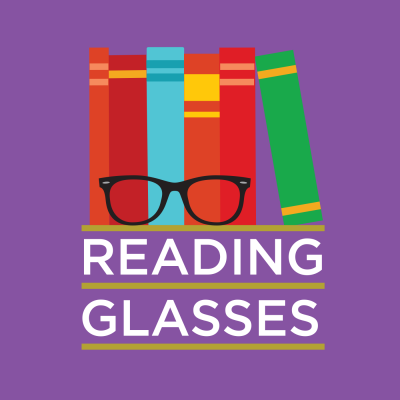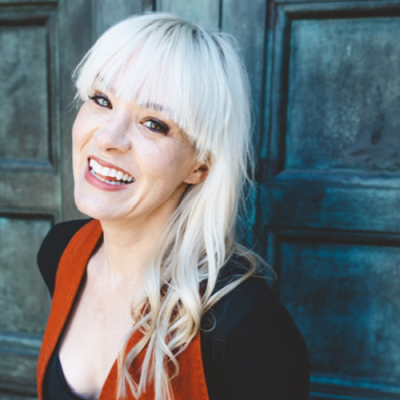Episode notes
This episode, Brea and Mallory talk about bibliotherapy and interview writer and disability advocate Heather Ratcliff. You can participate in online discussion with the use of the hashtag #BookTherapy!
Links –
Books Mentioned –
My Favorite Thing Is Monsters by Emil Ferris
Body Horror by Anne Elizabeth Moore
The Girl Who Slept With God by Val Brelinski
The Novel Cure By Ella Berthoud and Susan Elderkin
Fahrenheit 451 by Ray Bradbury
The Gargoyle by Andrew Davidson
What Are You Reading?
Brea is reading My Favorite Thing Is Monster by Emil Ferris and it’s amazing! Mallory is reading Body Horror by Anne Elizabeth Moore and it is also amazing.
Feedback
Follow up on Twitter poll – are you a Mallory or a Brea? Mallorys hate spoilers, Breas don’t mind them!
The results were..
64% Mallory, 36% Brea
Surprising!
A quick clarification about Libby from a listener, Nina –
While you guys were talking about bookish apps you spoke about Overdrive and Libby, but I wasn’t sure if you knew that Libby is actually the newer app being offered by Overdrive, which they (I think) are going to be focusing most of their app development on. So Libby is the new way to access your Overdrive materials (ebooks or audio) instead of the Overdrive app. The idea is that all of your libraries (if you use more than one) are all on one shelf, it takes fewer clicks to get to the content you want than it does when using the overdrive app, and if you’re connected to wifi it downloads all of your materials automatically instead of having to track them down in the overdrive app. You may have already known that, but if you didn’t I thought you’d like to!
Main Topic
This week, we’re talking about book therapy. What does that even mean? A lot of us read for comfort, a lot of us read for escapism. I think everyone has a least one book or series that has gotten us through some shit. Bibliotherapists are an actual thing, but for those of us without access to that, how do you use books to help you feel better?
History of Bibliotherapy — Term was coined in 1916 in an Atlantic Monthly article. By the 1920s, there were training programs for bibliotherapy. There is evidence of the idea though dating back to the Middle Ages.
It can be fictional or non-fictional. Fiction books are usually given to patients depending on their situation. So they are given things for catharsis, self-identification or insight. Identifying with the character in the story can help the person deal with their own issues similar to that character’s. Non-fiction books involve what we may call self-help books.
Professional bibliotherapists say that most people seek them out at life junctures: stuck in a career rut, depressed in your relationship, having a baby, etc.
Conditions it has been very effective for include deliberate self-harm, OCD, bulimia and insomnia. Older patients with depression have also benefited.
Graphic novels have also been effectively used for depression, drug abuse and PTSD. The origin of this is public health graphic novels from the 1940s — 12 page booklets about public health issues for children. But now there is a lot of research that says that graphic novels are an effective way to help those struggling with literacy and communication!
But what about just getting a book prescription?
NPR did an interview with a bibliotherapist Susan Elderkin. She recommends books for getting your heart rate down (The Old Man and the Sea) or getting out of bed in the morning (Mrs. Dalloway). But also for depression (The Unbearable Lightness of Being). There are admitted limitations because this is not a medical degree. We should emphasize that but it is a way to recognize you are not alone in whatever is going on with you and may encourage you to seek further help.
There’s an entire cure book called The Novel Cure: An A to Z of Literary Remedies!
A little science on the subject!
This is our very basic understanding of this, so please go read about it yourself. The idea is that we have “mirror neurons” that fire in our brain when we perform an action or when we see an action performed by someone else. A 2011 study found that the brain scans of participants showed similar stimulation when they read about a person doing something as they did when they did it themselves. Tests have also shown that people who read fiction are more empathetic. That’s a good reason to read more!
A New Yorker article says that reading can be good for your health, bibliotherapy aside. Regular readers sleep better, have higher self-esteem, lower rates of depression and lower stress levels.
Brea reads to escape and give herself a break from tough situations, while Mallory reads books about tough situations she’s in to help her understand them better. They are both valid and healthy techniques!
Interview
Mallory and Brea interview writer, photographer and disability advocate Heather Ace Ratcliff. Heather wishes there was better disabled representation in literature. She recommends writers Elsa Sjunneson-Henry, S.E. Smith and K.C. Alexander. Many able-bodied readers don’t realize how much being disabled -regardless of which disability- can affect you as a reader and writer. Heather has a pain condition which makes holding a physical book difficult to impossible. Being in pain also makes it incredibly difficult to focus, which makes it nearly impossible to write.
The eReader she uses is a Kindle Paperwhite – it’s small, light, has a backlit screen, and has the ability to change the text of the book, with a special font for people with dyslexia.
She wants to let readers know that looking down on alternative forms of reading – like listening to audiobooks- as not “real reading” being an elitist asshole. All types of reading – physical books, eBooks, audiobooks, active your brain in the same way. The publishing industry and reader culture has a whole needs to shift to better accommodate disabled readers. There needs to be more authors telling disabled stories, even if the authors are not disabled themselves. Disabled people do not exist to inspire non-disabled people and only have sad stories. The best thing able-bodied allies can do to help is make sure disabled people are included in the discussion. When it comes down to referring to disabled people, always ask how someone prefers to be referred to.
When it comes to books she likes to gift to people, she loves Fahrenheit 451 by Ray Bradbury and The Gargoyle by Andrew Davidson. She is always reading, usually multiple books at once! Her number one reading rule is that she gives a book 100 pages to hook her.
This episode’s Book Connection, a way to connect with other readers online, is hashtag #BookTherapy! Show us a picture of a book that got you through something on Instagram, or Tweet the title of it! We’ll post some of our own!
If you liked the show, please rate and review us on iTunes! It’s really great for us and helps us reach more readers! You can email us at readingglassespodcast at gmail dot com, find us on Twitter at readingGpodcast, on Instagram at readingglassespodcast, and you can always follow along on our bookish adventures using the general hashtag #readingglasses!
Thanks for reading!
In this episode...
Guests
- Heather Ratcliff
About the show
Do you love books? Want to learn how to make the most of your reading life? Join hosts Brea Grant and Mallory O’Meara every week as they discuss tips and tricks for reading better on Reading Glasses, a podcast designed to help you get more out of your literary experiences.
As professional creatives and mega-readers, Mallory and Brea are experts on integrating a love of reading into a busy lifestyle. Listeners will get help for bookish problems, like how to vanquish that To-Be-Read pile and organize those bookshelves. Brea and Mallory also offer advice on reader dilemmas. How do you climb out of a reading slump? How do you support authors while still getting books on the cheap? Where do you hide the bodies of the people who won’t stop talking while you’re trying to read? No matter what you read or how you read it, Reading Glasses will help you do it better.
Follow @ReadingGPodcast on Twitter and @readingglassespodcast on Instagram. Email Brea and Mallory at readingglassespodcast@gmail.com.
Sign up for the Reading Glasses Newsletter here!
Get in touch with the show
People
How to listen
Stream or download episodes directly from our website, or listen via your favorite podcatcher!



